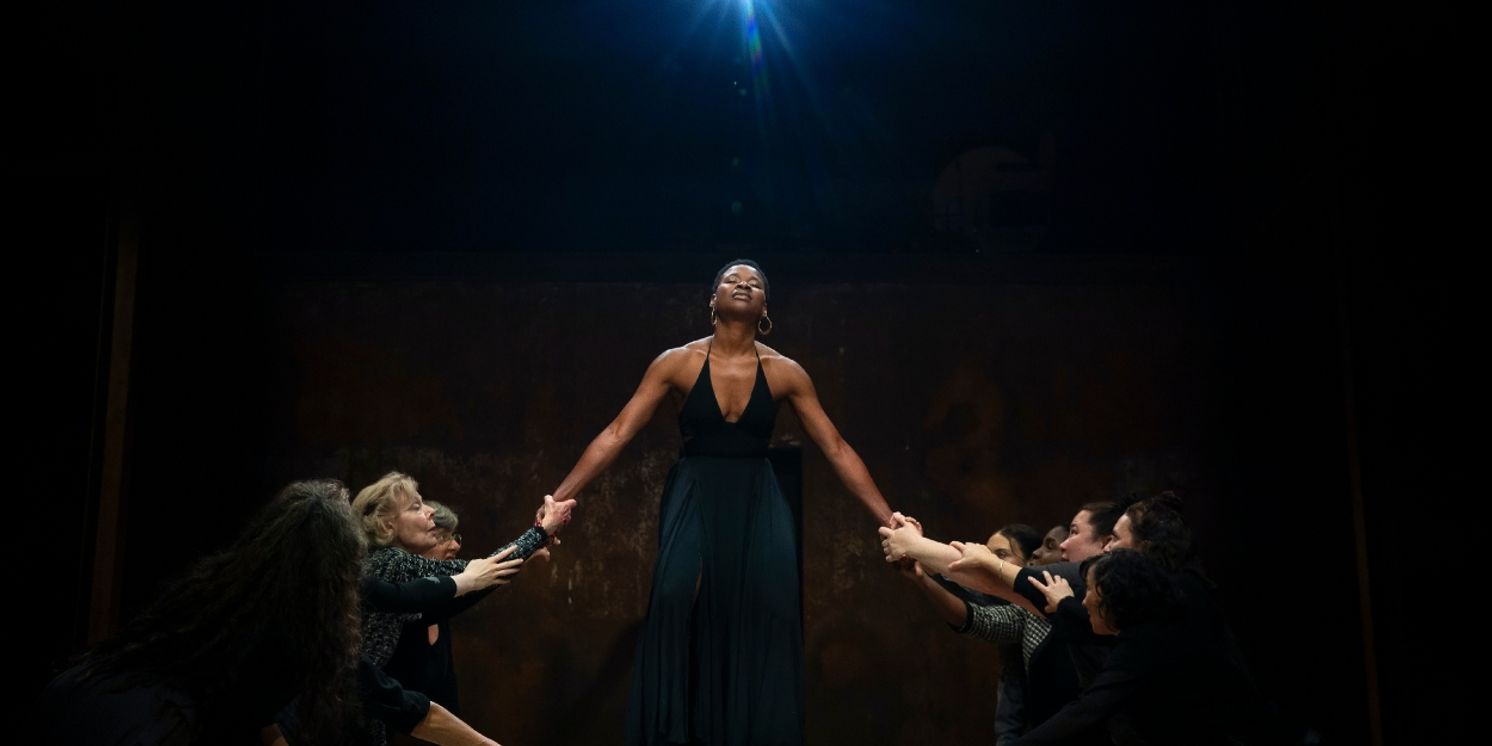Edinburgh 2022: Review: MEDEA, The Hub
The searing National Theatre of Scotland production runs until 28 August


Each word of Scottish poet Liz Lochhead's razor sharp adaption of Euripides' Medea is forged in fire. First staged in 2000, it is still searingly relevant and painfully urgent. It's a dangerous cocktail of antiquity and modernity that burns brightly, rendered by a strong cast who inject the language with throbbing vivacity.
Medea's alienation in Greece is brought into the limelight. She is not only betrayed by her husband Jason, but she is also abandoned by him as a stranger in a foreign land. Here Medea is a black woman trapped in a white world, a stranger whose English accent jars with the rest of the court-speak who converse in Scottish accents. Her isolation is amplified silently and her anger is sharpened; the production does not shy away from painting her bleak emotional landscape in full detail.
Adura Onashile delivers a scorching performance as Medea. She is cool and sardonic whilst masking the immense trauma that lingers beneath the surface. She wields the language like a knife, stabbing with each sentence, slicing with each syllable.
Michael Boyd's decision to have the audience up close and personal, standing beside the thrust stage is bold, but it pays off deliciously. The performers loom over the audience creating a potent immediacy to their on stage presences. Not only does it drag Medea's pain kicking and screaming into our reality but it lets the audience savour all of Onashile's fraught facial expressions; she communicates so much with so little, even the smallest scowl screams with palimpsestic pain.
Staged across a thrust stage, Medea duels with Jason. But this is no sophisticated fencing match, it's a guttural fist fight. Each of Medea and Jason's confrontations are emotional boxing matches thanks to Robert Jack's slimy portrayal of Medea's unfaithful husband. The intersection of his whiteness and his masculinity is sliced open; the nasty middle ground that entitles him to manipulate and gaslight is laid bare, bruised and battered. Blinded by his own arrogance, Jason becomes a victim of his own self-righteousness, a product of his masculinity.
Boyd reminds us why Greek Tragedy can still bite even after thousands of years. When so much theatre wears its moral compass on its sleeve, stories where nobody is wholly good or bad are refreshing. Does someone so nasty deserve such a fate as that of Jason's? is Medea right to do what she does?
The production excels at asking crunchy questions rather than producing polemics and the result is a visceral morality that hits hard and lingers long after the audience shuffle out of the theatre. Some of the audience gasp at Medea, some of them gawp, and some of them smile with devilish delight. Her pain is timeless, her story is essential.
Medea plays at the Hub as part of the Edinburgh International Festival until 28 August
Photo Credit: Jessica Shurte
Reader Reviews
Videos


